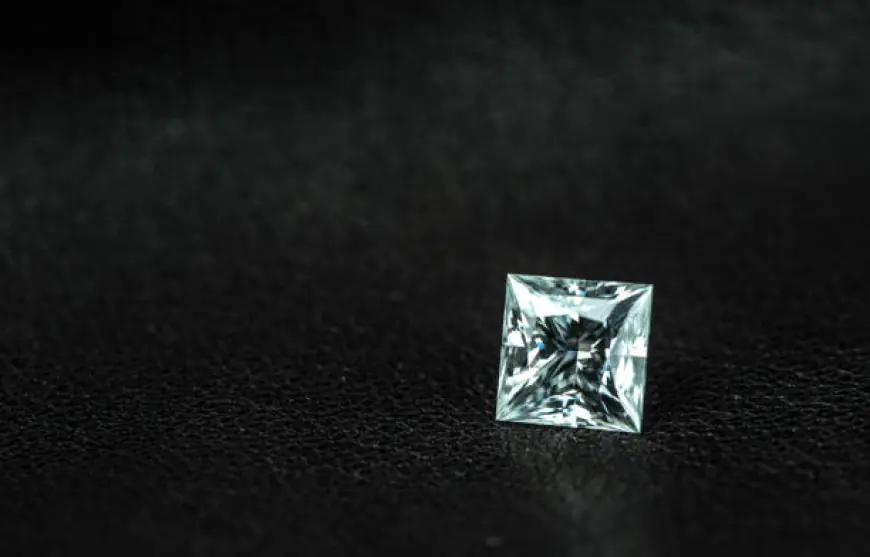The Rise of Lab-Grown Diamond Wedding Bands
Lab-grown diamond wedding bands are an affordable, ethical, and sustainable alternative to natural diamonds. They possess the same beauty, durability, and certification standards while costing 30-40% less. As consumers prioritize environmental responsibility and customization, the demand for lab-grown diamonds continues to grow. Advancements in technology are further improving their quality and appeal, making them a key trend in the jewelry industry.

Understanding Lab-Grown Diamonds
What Are Lab-Grown Diamonds?
Lab-grown diamonds are real diamonds created in a laboratory rather than mined from the earth. Scientists use advanced technology to replicate the natural diamond-growing process. These diamonds have the same physical, chemical, and optical properties as natural diamonds.
Comparison to Natural Diamonds
Lab-grown diamonds look the same as natural diamonds. They have the same hardness, brilliance, and durability. The main difference is their origin. Natural diamonds form over millions of years deep within the earth, while lab-grown diamonds take only a few weeks to create. Lab-grown diamonds are also more affordable, making them a great alternative for wedding bands.
Certification and Assessment
Lab-grown diamonds are certified and graded just like natural diamonds. Reputable organizations such as the Gemological Institute of America (GIA) and the International Gemological Institute (IGI) assess these diamonds based on the four Cs: cut, color, clarity, and carat weight. This certification ensures quality and authenticity.
The Evolution of Wedding Bands
Traditional Wedding Bands and Their Significance
Wedding bands symbolize love, commitment, and unity. Traditionally, they were made from gold, silver, or platinum, sometimes with natural diamonds. Over time, styles have evolved to include modern and unique designs.
The Rise of Lab-Grown Diamond Wedding Bands
With increasing awareness of sustainability and ethical concerns, more couples are choosing lab-grown diamond wedding bands. These rings offer a beautiful and meaningful choice while being environmentally friendly and cost-effective.
Benefits of Lab-Grown Diamond Wedding Bands
Affordability and Value
Lab-grown diamonds cost 30-40% less than natural diamonds of the same size and quality. This means couples can afford larger or higher-quality diamonds for their wedding bands without breaking their budget.
Environmental Sustainability and Social Responsibility
Mining natural diamonds can harm the environment, causing land disruption and water pollution. In contrast, lab-grown diamonds have a much lower environmental impact. Additionally, they avoid ethical concerns related to labor practices in the diamond mining industry.
Customization and Design Options
Lab-grown diamonds offer endless customization options. Couples can choose from various cuts, settings, and metal types. Since these diamonds are more affordable, it is easier to design unique and personalized wedding bands.
Designing and Caring for Your Lab-Grown Diamond Wedding Band
Choosing the Right Diamond and Setting
When selecting a lab-grown diamond wedding band, consider the diamond’s cut, clarity, color, and carat weight. Popular cuts include round, princess, and cushion. The setting also plays a key role in the ring’s appearance and durability.
Customization and Design Considerations
Many jewelers offer customization services for lab-grown diamond wedding bands. Couples can create unique designs by selecting specific metals, engraving special messages, or incorporating different diamond shapes.
Cleaning and Maintenance Tips
To keep a lab-grown diamond wedding band sparkling, clean it regularly using warm water, mild soap, and a soft brush. Avoid harsh chemicals and store the ring in a soft pouch when not in use. Periodic professional cleaning and inspections help maintain its beauty.
Market Trends and Consumer Demand
Drivers of Popularity and Growth
The demand for lab-grown diamond wedding bands is growing due to their affordability, ethical sourcing, and sustainability. Many consumers prefer these diamonds because they align with their values and provide a high-quality alternative to natural diamonds.
Shifts in Consumer Behavior and Preferences
Younger generations, especially Millennials and Gen Z, are driving the trend toward lab-grown diamonds. They prioritize ethical sourcing, environmental responsibility, and budget-friendly options. As a result, more jewelry brands are expanding their lab-grown diamond collections.
The Future of Lab-Grown Diamond Wedding Bands
Technological Advancements and Innovations
Technology in lab-grown diamond production continues to improve. New methods allow for better quality diamonds with fewer inclusions and more unique colors. This progress makes lab-grown diamonds even more appealing to consumers.
Market Outlook and Predictions
The lab-grown diamond market is expected to grow significantly in the coming years. As more people become aware of their benefits, demand will continue to rise. Jewelers will likely offer more styles, and prices may become even more competitive.
Conclusion
Summary of Key Points
Lab-grown diamond wedding bands are a modern, affordable, and sustainable choice for couples. They offer the same beauty and durability as natural diamonds without the high cost or environmental impact. With growing consumer interest and advancements in technology, lab-grown diamonds are set to shape the future of the jewelry industry.

 c6diamonds
c6diamonds 










